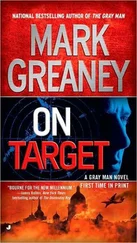On that note, Veronika lifted her phone to make a call. Now that she had downloaded the NewCorp files, it was time for her to call Riley and report a contact.
Among the first things an intelligence officer learns as part of his or her training in both OPSEC and PERSEC is to report all contacts with strangers up the chain of command. An idle conversation about the weather with an unfamiliar person at the taxi queue might be relevant to someone with knowledge of the larger scheme of the operation, no matter how random it feels to the operator on the ground.
Meeting the son of the U.S. President while in the act of obtaining access to the plant application server could not possibly have any sort of relevance to her New World Metals operation, but letting her boss know was SOP. Operational security on any mission dictated that an agent in the field notify his or her control officer at the first sight of anything out of the ordinary, and if anything ever qualified as out of the ordinary it would be exactly this situation.
But as she prepared to dial Riley’s New York mobile number, Veronika stopped herself.
Wait. Could this be useful?
She put the phone down and thought for a moment, and when she was finished thinking she chastised herself for taking all afternoon to come to the obvious conclusion. She’d been in the corporate intel world so long she’d forgotten how to see past her small, narrow, and mundane marching orders and take a look at the larger picture.
The larger opportunity in front of her.
No, now was not the time to dutifully consider Sharps Global Intelligence Partners’ best practices.
Now was the time to look out for herself.
The U.S. President’s son. Yes, Veronika thought. I can use this.
Veronika had lived like a rudderless ship for the past few years working in corporate intel, but the one thing that guided her was the hope—she wondered if it was fantasy—that someday she would get back to French intelligence. She’d left on bad terms three years earlier, and she’d wanted back in almost from the start.
Her old colleagues had told her to forget about it. She wasn’t ever getting back in the good graces of the executives at DGSE.
Then today happened. Today she bumped Jack Ryan, Jr. There was no question that, if exploited carefully and slowly, he could prove to be an incredible access point for French intelligence. They could learn details about the American President that they wouldn’t otherwise be able to obtain.
And they could only do it through Veronika. They’d have to take her back.
Of course, Martel would need to start a relationship with the handsome and eligible young bachelor, but that problem looked like it was sorting itself out nicely. Jack had proven to be just like so many other men in this world. He would close the distance between the two of them without her having to lift a finger.
Yes. She would begin a relationship with Ryan, she would contact DGSE, and she would tell them she was coming home with a prize.
French intelligence would welcome her back with open arms.
She wasn’t going to breathe a word of this to Riley, of course. Instead, she would mention her going-away party to Ryan the next day when he came to her department, and she would spend the evening ignoring Baggett and cultivating Ryan as an asset.
She smiled to herself, satisfied to be finishing one job and overlapping into a job that had the potential to reap incredible rewards.
44
Adam flew from Las Vegas to Los Angeles, and from there to Shanghai on an Airbus A330 flown by China Eastern. He sat in the back of coach and spent his time listening to Korean-language audio files on his mobile phone.
He erased the files two hours before touchdown in China so there would be no record of his study of the language anywhere on his person.
Shortly after landing, Adam entered the immigrations area of Shanghai Pudong International Airport, waited his turn, and then stepped up to the immigration control officer sitting behind a desk. The man took Adam’s U.S. passport—it claimed his name was Shan Xin—and then looked through it. He stopped on the Chinese visa, affixed to one of the pages.
In Mandarin he asked, “You are Chinese?”
“Yes. I left China eighteen years ago to go to school in U.S.”
“You haven’t been back here?”
“No, sir.”
“Married an American?” The immigration officer didn’t know this, but he assumed as much.
“That is correct. I am home to visit family.”
“Where is your Chinese passport?”
“I lost it long ago. The embassy said I could travel on my U.S. passport and obtain a new Chinese passport while I am here if I provide my birth records. All that information is here with my mother.”
The officer eyed Yao carefully, then began thumbing through his passport slowly. He checked the few stamps that were there, and then he put the passport under a tabletop magnifier and examined the binding.
If Adam hadn’t known what was going on he would have been nervous, but he was aware they always did this at Chinese immigration control. The man was looking for evidence a page or pages had been removed with a razor in an attempt to get rid of entrance stamps. Foreigners traveling to China are not admitted if they have any Nepal entrance stamps.
The control officer found nothing amiss, and four minutes after stepping up to the desk, Adam Yao took his passport back, hefted his luggage off the floor, and began walking toward the arrivals area of the airport. He was now, according to his legend, Shan Xin, a Chinese national.
—
Three hours after arriving in Shanghai, Adam Yao entered a plain building in Shanghai’s Kunshan suburb. Inside he took an elevator to the second floor and then knocked on an unmarked metal door. He saw the peephole darken for a moment, and then an intercom next to the door crackled.
In Mandarin, he heard: “Name?”
“Shan Xin. I have an appointment with Mr. Hu.”
The door clicked open. Two men looked at his passport and then they frisked him carefully, removing his wallet, his mobile phone, and even a watch. One of them said, “Listening devices. Everyone must be searched.”
Adam had brought nothing incriminating into China, so he remained relaxed, and soon they led him into an office where a dour-looking older man sat behind a desk. This was Hu; Adam knew because he had videoconferenced with the man from Virginia via Skype in order to get the job. At the time, Hu had explained the job would be at one of the gangster miner operations in Mongolia, and he’d stressed that he needed Adam—or Shan Xin, as he knew him—to come to Shanghai as soon as possible for further vetting and processing.
As in the Skype teleconference, in person Hu was all business. He questioned Adam on his background, and on his knowledge of the computer system used to operate the hydraulic cone crushers. Adam could tell from the outset this wasn’t some sort of security check to confirm Yao’s identity. Instead, Hu was just making sure that Shan Xin possessed the qualifications for the job. Adam had passed all this in their Skype interview two weeks earlier, but it was clear to Yao that Hu was a careful man.
Perhaps not careful enough to recognize a CIA plant, but more than careful enough not to hire an unqualified employee.
Finally the older Chinese man was satisfied, and he pulled out some paperwork. “As we are not state-owned, we have a more informal approach.”
Adam thought Hu’s understatement was funny. Not only was the company not state-owned, it was wholly illegal. He kept his face blank.
“You will work on an eight-week contract, and you can be let go at any time.”
Читать дальше












